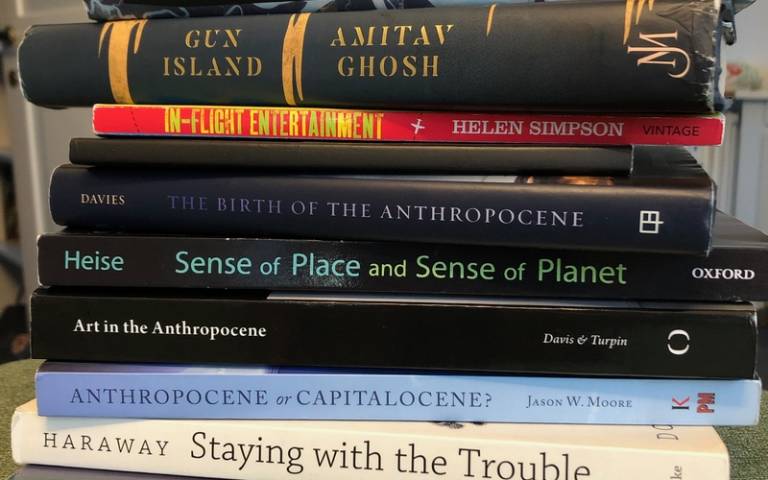Using literary analysis to understand how the Anthropocene influences literary history
Students are examining how literature has risen to the challenge of representing global climate change.

8 October 2020
A second-year taught module for BA Comparative Literature is giving its students insight into prominent critical debates taking place in literature that surround climate change and other impacts that humanity is having on the planet.
The Anthropocene is the most recent period in Earth's history, during which human activity started to have a significant impact on the planet's climate and ecosystems.
“The first part of the course focuses on what is meant by the term Anthropocene and how it has affected literary history,” explains Professor Florian Mussgnug (UCL School of European Languages, Culture & Society, SELCS), who co-convenes the module with his departmental colleagues Dr Hans Demeyer and Professor Jakob Stougaard-Nielsen.
“We explore its effects on categorising the past into discrete, named periods and on the cultural understanding of persistent and emergent global inequalities.”
Students investigate several alternative concepts, such as the Capitalocene, proponents of which argue that the climate crisis is being driven by the globalisation of markets. “We want them to inquire further into the relation between humanity and nature, and the socioeconomic consequences of ecological devastation,” explains Dr Demeyer.
Among the set texts is ‘Anthropocene Fictions: The Novel in a Time of Climate Change’ by Adam Trexler.
The theoretical side of the module is accompanied by analyses of novels, short stories and poetry, through which students explore how literature can represent – and in some cases misrepresent – the timescales and geographic scale of the effects of humans on nature and the environment.
These include ‘The End We Start From’ by Megan Hunter, in which the narrator gives birth as a severe natural disaster hits the UK and forces her family to flee their home; ‘Gun Island’ by Amitav Ghosh, a novel that tackles climate change and migration; and a selection of 19th and 20th-century landscape poems from Britain and Scandinavia.
“The cultural history of climate starts longs before the 21st century,” remarks Professor Stougaard-Nielsen. “Poetry can also provide important insights here.”
“At UCL, we want to advance cross-disciplinary debates about contemporary challenges such as climate change, and the arts and humanities play a crucial role in this endeavour,” Professor Mussgnug adds.
 Close
Close


